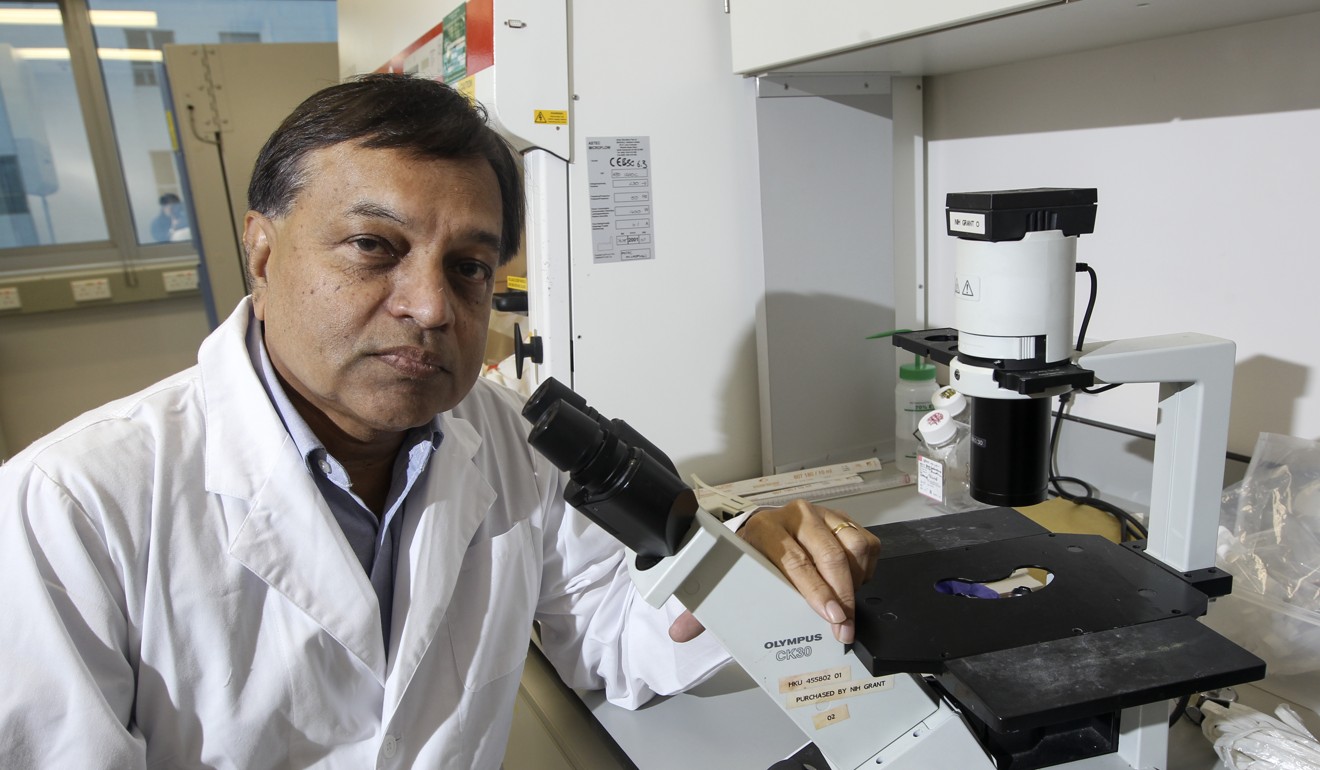
Coronavirus: final testing of Hong Kong dog’s blood concludes it was infected
- Antibodies for the virus were found in 17-year-old Pomeranian’s blood, proving infection, animal welfare authority says
- Officials say they will continue quarantining pets of confirmed Covid-19 cases, although no evidence they play a role in spreading the virus
Final testing has confirmed that the 17-year-old Pomeranian revealed as the first dog to catch the coronavirus was infected, Hong Kong’s animal welfare authority said, after antibodies were found in the animal’s blood.
Despite the conclusive positive reading, an Agriculture, Fisheries and Conservation Department (AFCD) spokesman stressed that cases of infection in dogs appeared “infrequent”, with most of the city’s quarantined animals testing negative.
The AFCD said that wider checks had revealed dogs and cats were not easily infected and that there was no evidence they could spread the virus to humans or other animals.
First dog found with coronavirus has died, Hong Kong authorities say
The Pomeranian, called Benny, which belonged to a now-recovered Covid-19 patient, had been under mandatory quarantine at a government facility since February 26 due to repeatedly testing “weak positive” from oral and nasal samples.
Benny returned home after two negative tests proved he was no longer infected, and passed away three days later.
Medical sources believed he had died from old age and underlying illnesses, adding he had shown no signs of Covid-19, the disease caused by the new virus.
While Benny was in quarantine, the AFCD also took blood samples on March 3. Officials said on March 13 that the first serology test – which looks for antibodies in the blood that would confirm infection – came back negative, meaning no antibodies specific to the coronavirus were found in the pet’s system.
But further serological testing was conducted on the blood sample at the World Health Organisation reference laboratory at the University of Hong Kong (HKU) and the final test result was positive, according to an announcement by the AFCD on Thursday night.
“This indicates that the Pomeranian had developed an immune response to the viral infection with antibodies found in the blood,” the spokesman said.
“Veterinary experts and scientists from … City University of Hong Kong, as well as the school of public health of the HKU, have concluded that the result further supports that the Pomeranian has been infected with the Covid-19 virus,” he concluded.

The spokesman added that virus isolation, another form of testing, was performed on previous samples taken from the Pomeranian with a negative result, indicating no live virus was retrieved.
As of Wednesday, the AFCD had conducted tests on 17 dogs and eight cats from households with confirmed coronavirus cases and people in close contact with patients, and only two dogs had tested positive for the virus.
The second dog was a two-year-old German shepherd, which twice tested positive for the virus before returning a negative reading on Monday.
“These findings indicate that dogs and cats are not infected easily with this virus, and there is no evidence that they play a role in the spread of the virus,” the spokesman added.
“Nevertheless, as Covid-19 is a newly emerged disease and the situation is still evolving, the AFCD is taking a precautionary approach in quarantining animals from households with confirmed human cases.”
The spokesman said there was currently no evidence that pet animals become sick and under no circumstances should owners abandon their pets.
In an earlier interview with the Post, leading virologist Professor Malik Peiris of HKU confirmed the two infected dogs did not develop any symptoms of sickness.
He said animals might only catch the virus through very close contact with a confirmed patient.
“Neither of the two cases had the disease caused by the coronavirus. The public might have confusion, but when dogs are infected, it does not mean they have the disease or they are sick,” he said.
Purchase the China AI Report 2020 brought to you by SCMP Research and enjoy a 20% discount (original price US$400). This 60-page all new intelligence report gives you first-hand insights and analysis into the latest industry developments and intelligence about China AI. Get exclusive access to our webinars for continuous learning, and interact with China AI executives in live Q&A. Offer valid until 31 March 2020.

